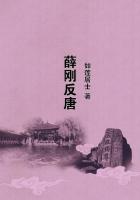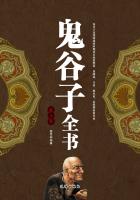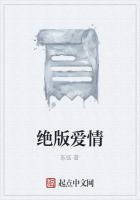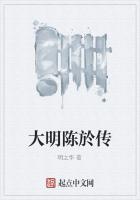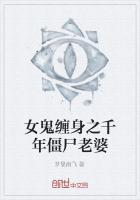de Boiscoran and Count Claudieuse cannot help asking themselves, if there is not something else between these two men, besides what the trial has made known. We cannot explain to ourselves these singular answers given to the president's questions, nor does any one understand the silence observed by M. de Boiscoran's counsel.
Do they abandon their client? No; for we see them go up to him, shake hands with him, and lavish upon him every sign of friendly consolation and encouragement.
We may even be permitted to say, that, to all appearances, the president himself and the prosecuting attorney were, for a moment, perfectly overcome with surprise. At all events, we thought so at the moment.
But the president continues,--
P.--I have but just been asking the accused, count, whether there was any ground of enmity between you.
C.C.--(In a steadily declining voice.) I know no other ground except our lawsuit about a little stream of water.
P.--Has not the accused once threatened to fire at you?
C.C.--Yes; but I did not think he was in earnest, and I never resented the matter.
P. Do you persist in your declaration?
C.C.--I do. And once more, upon my oath, I declare solemnly that Irecognized, in such a manner as to prevent any possible mistake, M. Jacques Boiscoran.
It was evidently time that Count Claudieuse should end his evidence. He begins to totter; his eyes close; his head rolls from side to side; and two ushers have to come to his assistance to enable him, with the help of his own servant, to leave the room.
Is the Countess Claudieuse to be called next?
It was thought so; but it was not so. The countess being kept by the bedside of one of her daughters, who is most dangerously ill, will not be called at all; and the clerk of the court is ordered to read her deposition.
Although her description of the terrible event is very graphic, it contains no new facts, and will remain without influence on the proceedings.
The next witness is Ribot.
This is a fine handsome countryman, a regular village cock, with a pink-and-blue cravat around his neck, and a huge gold chain dangling from his watch-pocket. He seems to be very proud of his appearance and looks around with an air of the most perfect self-satisfaction.
In the same way he relates his meeting with the accused in a tone of great importance. He knows every thing and explains every thing. With a little encouragement he would, no doubt, declare that the accused had confided to him all his plans of incendiari** and murder. His answers are almost all received with great hilarity, which bring down upon the audience another and very severe reprimand from the president.
The witness Gaudry, who succeeds him, is a small, wretched-looking man, with a false and timid eye, who exhausts himself in bows and scrapes. Quite different from Ribot, he seems to have forgotten every thing. It is evident he is afraid of committing himself. He praises the count; but he does not speak the less well of M. de Boiscoran. He assures the court of his profound respect for them all,--for the ladies and gentlemen present, for everybody, in fine.
The woman Courtois, who comes next, evidently wishes she were a thousand miles away. The president has to make the very greatest efforts to obtain, word by word, her evidence, which, after all, amounts to next to nothing.
Then follow two farmers from Brechy, who have been present at the violent altercation which ended in M. de Boiscoran's aiming with his gun at Count Claudieuse.
Their account, interrupted by numberless parentheses, is very obscure. One of the counsel of the defendant requests them to be more explicit; and thereupon they become utterly unintelligible.
Besides, they contradict each other. One has looked upon the act of the accused as a mere jest: the other has looked upon it so seriously as to throw himself between the two men, in order to prevent M. de Boiscoran from killing his adversary then and there.
Once more the accused protests, energetically, he never hated Count Claudieuse: there was no reason why he should hate him.
The obstinate peasant insists upon it that a lawsuit is always a sufficient reason for hating a man. And thereupon he undertakes to explain the lawsuit, and how Count Claudieuse, by stopping the water of the Seille, overflowed M. de Boiscoran's meadows.
The president at last stops the discussion, and orders another witness to be brought in.
This man swears he has head M. de Boiscoran say, that, sooner or later, he would put a ball into Count Claudieuse. He adds, that the accused is a terrible man, who threatened to shoot people upon the slightest provocation. And, to support his evidence, he states that once before, to the knowledge of the whole country, M. de Boiscoran has fired at a man.
The accused undertakes to explain this. A scamp, who he thinks was no one else but the witness on the stand, came every night and stole his tenants' fruit and vegetables. One night he kept watch, and gave him a load of salt. He does not know whether he hit him.
At all events, the thief never complained, and thus was never found out.
The next witness is a constable from Brechy. He deposes that once Count Claudieuse, by stopping up the waters of the little stream, the Seille, had caused M. de Boiscoran a loss of twenty thousand weight of first-rate hay. He confesses that such a bad neighbor would certainly have exasperated him.
The prosecuting attorney does not deny the fact, but adds, that Count Claudieuse offered to pay damages. M. de Boiscoran had refused with insulting haughtiness.
The accused replies, that he had refused upon the advice of his lawyer, but that he had not used insulting words.
Next appeared the witnesses summoned by the defence.

